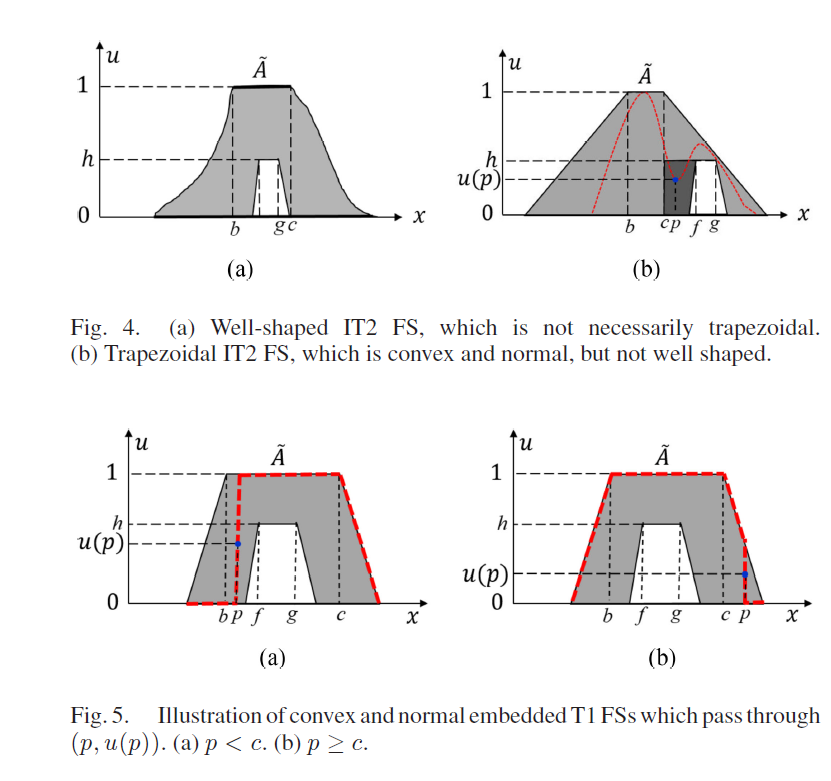恭喜张海涛教授作为共同通讯的IEEE Transactions on Fuzzy Systems 论文“A Constrained Representation Theorem for Well-Shaped Interval Type-2 Fuzzy Sets, and the Corresponding Constrained Uncertainty Measures”入选2019年IEEE CIS(计算智能学会)亮点论文(全世界共8篇,TFuzzy领域2篇)。
该文章提出了一个适用于形状规整的IT2 FSs的约束表示定理(CRT),只用到了凸包和常规的嵌入式T1 FSs,表明由三种文字编码方法和四种词语计算引擎产生的IT2 FSs都是形状规整的IT2 FSs。本文还用CRT计算了形状规整的五个受约束的不确定性参数(形心、基数、模糊度、方差和偏斜度)。本文提出的CRT和与之相关的受约束的不确定性参数在词语计算、使用不确定原则的IT2模糊逻辑系统设计、以及测量两个形状良好的IT2 FSs之间相似性的方面有应用价值。
全文链接https://ieeexplore.ieee.org/abstract/document/8481422
文章简介:
A Constrained Representation Theorem for Well-Shaped Interval Type-2 Fuzzy Sets, and the Corresponding Constrained Uncertainty Measures
Abstract—The representation theorem for interval type-2 fuzzy sets (IT2 FSs), proposed by Mendel and John, states that an IT2 FS is a combination of all its embedded type-1 (T1) FSs, which can be nonconvex and/or subnormal. These nonconvex and/or subnormal embedded T1 FSs are included in developing many theoretical results for IT2 FSs, including uncertainty measures, the linguistic weighted averages (LWAs), the ordered LWAs (OLWAs), the linguistic weighted power means (LWPMs), etc. However, convex and normal T1 FSs are used in most fuzzy logic applications, particularly computing with words. In this paper,we propose a constrained representation theorem (CRT) for well-shaped IT2 FSs using only its convex and normal embedded T1 FSs, and show that IT2 FSs generated from three word encoding approaches and four computing with words engines (LWAs, OLWAs, LWPMs, and perceptual reasoning) are all well-shaped IT2 FSs. We also compute five constrained uncertaintymeasures (centroid, cardinality, fuzziness, variance, and skewness) for well-shaped IT2 FSs using the CRT. The CRT and the associated constrained uncertaintymeasures can be useful in computing with words, IT2 fuzzy logic system design using the principlesof uncertainty, and measuring the similarity between two well-shaped IT2 FSs.

